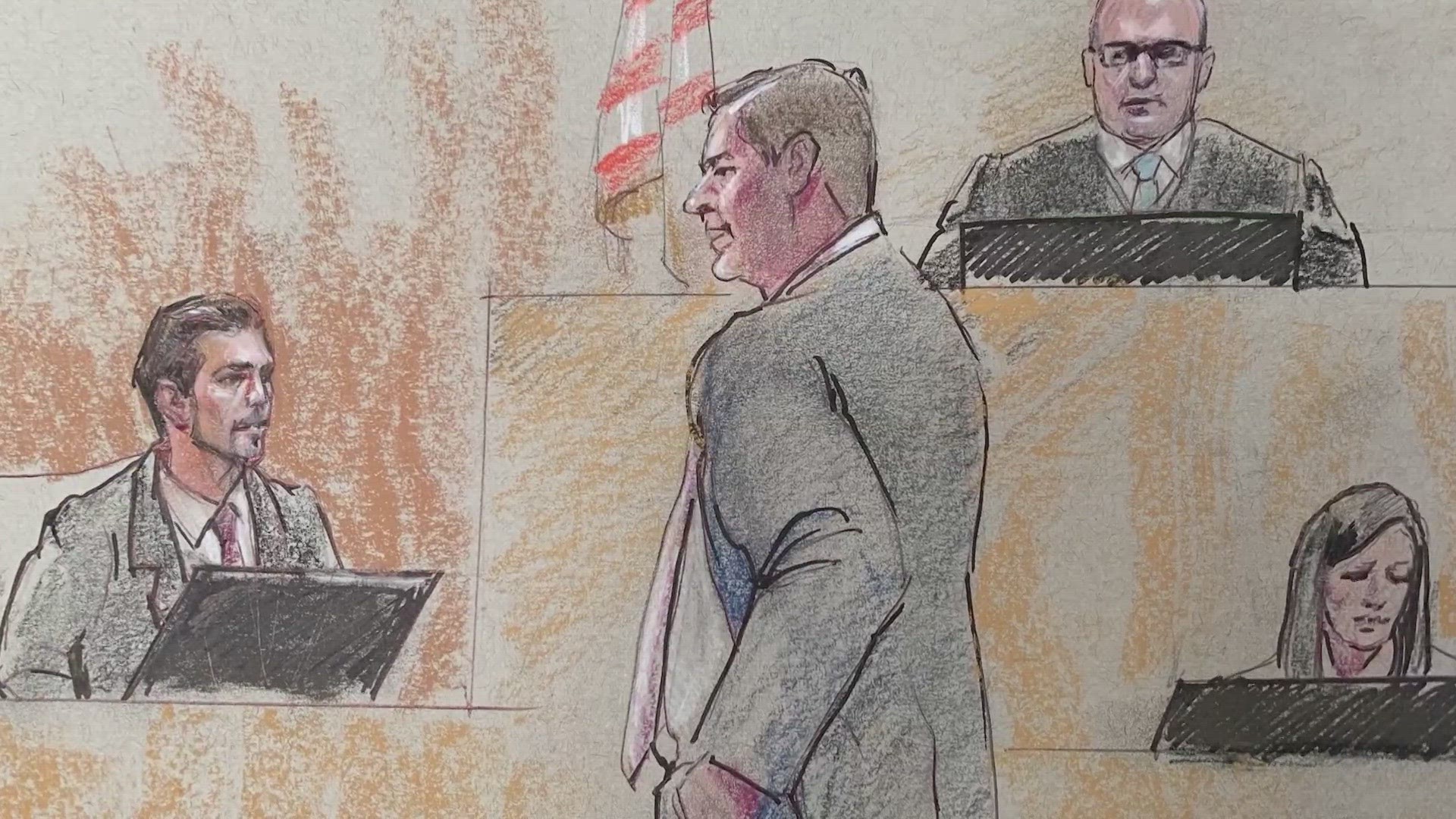SAN ANTONIO — A property maintenance executive took the stand in a trial over a breach of contract between a military housing company and tenants who lived at JBSA Randolph.
US Army Lt. Col. Shane Vinales and his wife Becky are suing AETC II Privatized Housing, an entity that oversees Hunt Military Communities, one of the largest military housing providers in the country. Hunt operates Randolph Family Housing at Joint Base San Antonio-Randolph, where many families claim they dealt with mold and other structural issues during their tenancy.
The Vinales family’s trial is one of many that are expected to start. The families are suing to prove the housing company breached its contract to keep the homes habitable.
Today, Chris Radliff, the VP of Operations with Hunt Military Communities affirmed the buck stops with him when it comes to maintenance requests and issues. Although he testifies he was never in the home, he was questioned about the work his maintenance techs did at the Vinales’ home.
Radliff spent several hours being questioned by the plaintiff’s attorneys about the company upholding its end of the lease agreement. Radliff testifies that his company takes the landlord responsibilities ‘very seriously.’
The plaintiff’s attorney, Ryan Reed, contends that the maintenance technicians did not properly document the reported mold in the Vinales home.
Radliff was shown photos that says “appears” to be mold, but never outright admitted to mold being in the home, claiming he’s not an expert on it. Radliff testifies “we went above and beyond” to remediate the Vinales home due to “suspect” growth of mold.
“You’d agree the maintenance technicians were not properly reporting mold concerns?” Reed asked.
“I couldn’t tell you,” Radliff responded. He says he has no firsthand knowledge of what his maintenance technicians did or didn’t report or see during the responses to work orders.
One instance that appears to show mold not being identified in a work order includes a request for duct cleaning work submitted by the Vinales on November 15. The work order says maintenance adjusted the vents but a work order was submitted weeks later for the same issue.
Radliff testifies the plaintiffs delayed the airduct cleaning. Work order detail forms show maintenance workers left multiple voicemails and says the residents needed to reschedule the appointment.
On January 23, 2019, a work order states the resident refused to leave the unit when the cleaning was being done. Despite that delay, Radliff testifies his technicians went “above and beyond” to fix those issues
Although mold—like what KENS reported was in other homes on base—was shown to Radliff, he would not answer if the mold came from inside the house. The house went through a major mold remediation—which led to some of the belongings being thrown out because they still had mold.

